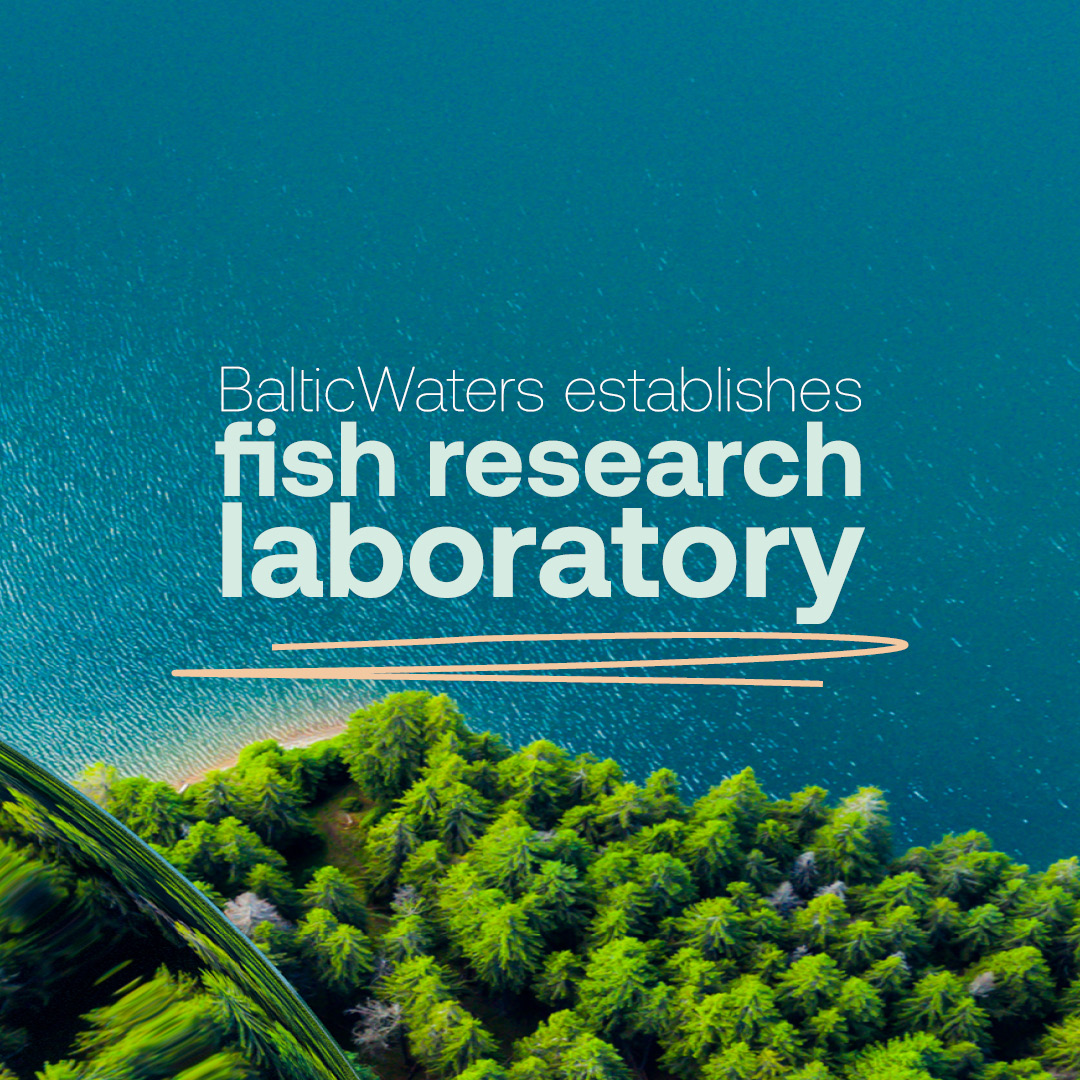The need to protect the Baltic Sea’s ecosystem, biodiversity and natural resources has never been greater. At the same time, the need for new knowledge is critical. To create conditions for new research on reproduction and restocking of endangered fish species, the foundation BalticWaters is establishing a new fish research laboratory – the first of its kind in the Baltic Sea region.
“The situation is critical for many marine fish species in the Baltic Sea, and we must do what we can to reverse the negative trend. The new fish research laboratory will provide activities and valuable knowledge to do so,” says Konrad Stralka, Executive Director of BalticWaters.
Large-scale research on Baltic Sea fish
The new fish research laboratory is being built in Studsvik Tech Park outside Nyköping, Sweden, with construction starting in early 2024 and work expected to start in early 2025. The laboratory will enable large-scale research on the Baltic Sea’s wild cold-water fish – from small fish to full-grown fish. It will house the foundation’s demonstration project ReCod – Release of Small Cod in the Baltic Sea, which has grown out of the Ar research station on northern Gotland. At the same time, the fish research laboratory will be able to host visiting researchers who want to learn more about the cold-water fish of the Baltic Sea.
The laboratory will have four main areas of work: restocking of cold-water fish in the Baltic Sea, research on cold-water fish, disseminating information and contributing to knowledge for a sustainable future aquaculture of cold-water fish.
In total, BalticWaters is investing SEK 150 million in the laboratory. Studsvik has been able to meet the needs for real estate and infrastructure, while the grocery group Axfood enters as a long-term partner in the project. Axfood has long worked for more sustainable fishing and was the first in Sweden to remove red-listed fish and shellfish from its stores. Today, the goal is to exclusively sell sustainability-certified and green-listed seafood by 2025.
“Investment in research is necessary to ensure a long-term and sustainable food supply of fish from the Baltic Sea for future generations,” says Åsa Domeij, Head of Sustainability at Axfood.
Decline for several fish species
The eastern Baltic cod stock have declined drastically in recent decades, and now the herring in the central Baltic Sea is showing signs of a similar development, and turbot is also in sharp decline. These fish species are of fundamental importance to the Baltic Sea ecosystem and biodiversity, as top predator, ecosystem food base and food for human consumption.
Baltic Sea fish have adapted to the unique brackish water conditions of the sea over thousands of years. If a species disappears, it cannot be replaced by individuals from other sea areas.
For further information
Konrad Stralka, Executive Director, BalticWaters. Email: konrad.stralka@balticwaters.org. Tel: +46 (0)70 750 23 31
Peter Hellström, Head of Sustainability Communication, Axfood: peter.hellstrom@axfood.se Tel: +46 (0) 76 279 50 14.

